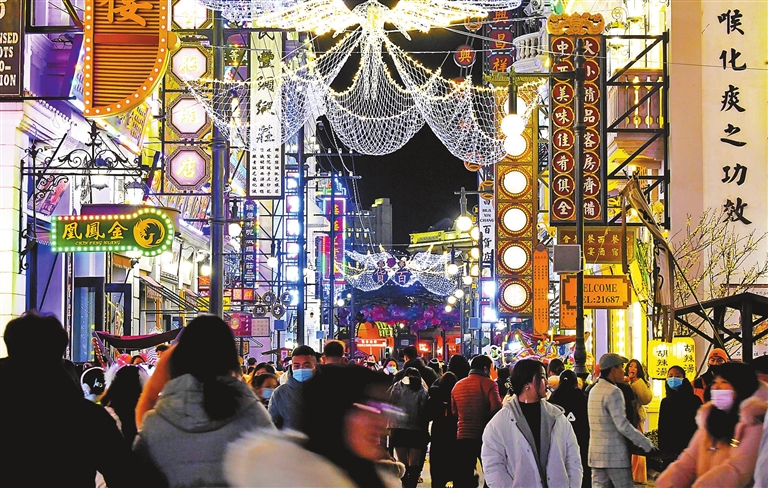
WHILE the U.S. box office continues to suffer under the heel of the pandemic, theaters on the other side of the Pacific are attracting customers in droves. In Japan, a record number of people saw movies in Imax Corp. theaters over the weekend, according to chief executive officer Rich Gelfond. In China, December ticket sales at the company’s big-screen theaters jumped 28 percent from a year earlier, when few people had heard of the novel coronavirus. The recovery in demand is one of the few positive signals for Hollywood studios, which saw box-office revenue plummet in 2020 with most U.S. theaters closed and the release of practically all new blockbusters delayed. The industry is now planning its return to semi-normal business in April, hoping customers who have been glued to streaming services for a year will return to theaters after vaccines have been distributed. “You hear narratives in North America: ‘Are movies coming back? What’s going to happen?’ And the answer is an unqualified yes,” Gelfond said. “The vaccine is on the way, and hopefully after the vaccine hits a certain critical mass the theaters will reopen and the people will come.” Two Asian films have driven sales in Chinese and Japanese theaters over the past few weeks. “Demon Slayer,” a Japanese film based on a graphic novel, has become that country’s highest-grossing film after more than two months in theaters. In China, domestically produced movies including “Shock Wave 2” lured in audiences last month. Hollywood movies haven’t performed as well in the region. “Wonder Woman 1984,” the US$200 million DC Comics film released on Christmas Day, only sold US$25 million worth of tickets in China as of Sunday. Meanwhile, locally made movies helped drive box-office sales to a record 545 million yuan (US$84 million) on New Year’s Day, according to ticketing platform Maoyan Entertainment. Gelfond said it’s unlikely Asian audiences have lost their taste for Western fare, and expects U.S. films will continue to dominate global ticket sales when the virus is under control. “Last year was a question of filling in a vacuum by the Chinese local films; there was nothing playing,” he said. “Once the Hollywood films come back, I think the audiences will want to see those as well as the local films.” Hollywood halts productions In response to an extended stay-at-home order until Jan. 16 for Southern California in the U.S., the Producers Guild of America (PGA), the Screen Actors Guild-American Federation of Television and Radio Artists (SAG-AFTRA), and the Joint Policy Committee on Monday jointly called for a “temporary hold on in-person production in Southern California” until hospital overcrowding has subsided, so as to protect their members, which altogether consist of hundreds of thousands of filmmakers, actors, crew and advertisers. The Los Angeles County Department of Public Health reported 13,512 new COVID-19 cases in the most populous U.S. county Tuesday, with 7,898 people already hospitalized, dropping intensive care unit capacity in the region to zero. Public officials have predicted a potential spike in confirmed cases to 9,000 a day over the next two weeks, with a weekly death toll of 1,000 or more. “Even putting aside the risk of acquiring COVID on set, on-set production always poses some risk of injury, whether because of a stunt gone wrong, an equipment failure or a garden-variety fall,” said SAG-AFTRA’s national executive director David White. ”Right now, with few if any hospital beds available, it is hard to understand how a worker injured on set is supposed to get treatment,” he said. Film and TV production has been deemed an “essential industry” in California and exempted from COVID-19 restrictions issued by the government last year. With frequent testing and strict safety protocols, new films and TV episodes have been produced during the pandemic with no infections. However, with California becoming an epicenter of the recent surge and more positive tests cropping up in the entertainment industry, Los Angeles County health officials have urged productions to shut down. Most TV studios and streamers have postponed production by one or more weeks in January. The suspension of in-person production affected talk shows as well, pushing “Jimmy Kimmel Live!” and “The Late Late Show” back to remote filming. (Xinhua, SD-Agencies) | 
